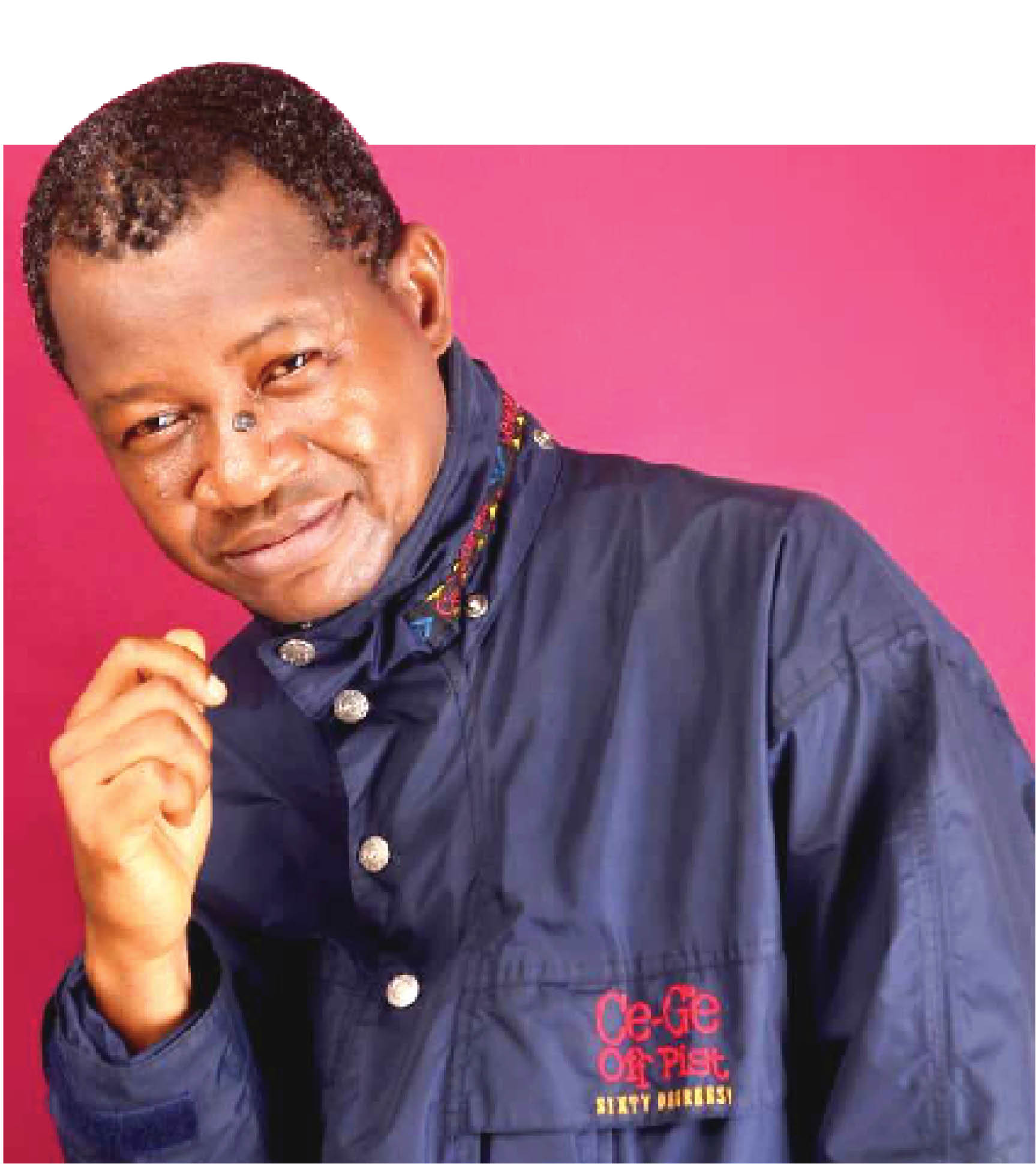Chika Abanobi is the author of ‘From Best Dad to Dearest Daughter’, a series of WhatsApp messages between the author and his daughter. He is also an Associate Editor with The Sun Newspapers. Here, he talks about the book, what inspired it, and more. Excerpts:
“From Best Dad to Dearest Daughter’ is an unusual book. What triggered it?
- Jega’s verdict: Buhari’s govt disappointing
- Attack on Fulani doesn’t represent Yoruba interest — MSSN
It was triggered by a WhatsApp exchange I had with my daughter, Victory or Halima, a student of Computer Science at Imo State University, Owerri, sometime in December 2019. I had sent her some messages in which I apologised to her over something I felt I did wrong. I think I accused her of doing something but later discovered that I was wrong. We parents often do that in our relationship with our children. But as every parent can testify, it is not deliberate. She sent a message back to thank me for the apology. She called me “best dad” as she did so. Obviously, she did not expect the apology. But she should have, because I always apologize to her and her siblings whenever I do or say something that, I, on a second thought, felt I shouldn’t have done or said. But remembering that before this WhatsApp exchange, I’d been talking to her about some moral issues, challenges of growing into a teenager or adolescent and the need to take her studies seriously, I decided to revisit those subjects, not directly this time around, but indirectly by exploring the “best dad” motif in some of the books and other materials, like Twitter messages I had read. So, I like to see the book as a product of a writer’s brainwave.
How would you say your daughter influenced your writing approach and to what extent do you think others who have daughters will relate to your work?
She influenced it with her reference to “Best Dad” in her response to my WhatsApp message. Of course, before then, over the years, I had read about other daughters’ relationship with their dads, daughters like Hilary Clinton, Michelle Obama, Malala, Chimamanda Ngozi Adichie and the Nollywood actors I mentioned in the book. I had also read about the students that made their parents proud by graduating with first-class results. Her reference to “best dad” only served as a trigger to remembering those things that I read as well as my decision to put my thoughts down in the form I did. I could have gone straight to the issues raised in the book by moralizing them. But I didn’t want to use that approach because I felt that it might not be able to capture and sustain her interest all through.
Talking about others who have daughters, initially it wasn’t my intention to turn it into a book. Actually, I had written a shorter version of the content which I typed, printed out and stapled, in a mimeograph form, solely for my daughter in December 2019. But it was the comments she, her friends and her youth leaders made when they read the cyclostyled sheet they saw with her that prompted me to take up the task of expanding the content and turning it into a book in April last year, during lockdown caused by the pandemic. Their comments showed that it will be useful not only to the youths, especially females, but also parents with children at teenage or adolescent age. I wasn’t surprised therefore when one of the newspaper reviewers of the book, Adewale Oshodi, of the Nigerian Tribune, observed that “most fathers cannot discuss the things shared in the book with their daughters, so the author has really helped in this area.”
What was your writing process like? Did your daughter have a say in what you wrote? How did she feel about the general theme of the book?
Like I noted, it was her comment, those of her friends, and her church youth leaders who had the opportunity of reading what I now regard as the draft of the book, that prompted my decision to turn it into a full book. I will say she is intrigued by the general theme of the book, by what I was able to create out of the short WhatsApp exchange that took place between us. She is also impressed with the fact that I was able to go deeper than I did with the draft. I did so because apart from wanting to talk to my daughter in a unique way, I also wanted to reach out to parents with teenage and adolescent girls. I wanted them to learn one or two things about child-training. In other words, in writing the book, I tried to kill two birds with one stone.
You mentioned some well-known people in the book, such as the Nigerian actor Bimbo Ademoye, United States renowned doctor, Ben Carson, among others. What influenced this decision?
I wanted my daughter to know what it truly means to call a father best dad. I wanted her to know that it goes beyond mere sloganeering. I needed to draw her attention to that fact by presenting case-studies of people who also saw their dads as best dads. A ‘best dad’ can, sometimes, be a killjoy, seemingly, and I wanted her and other daughters to know that.
Another actor you talked about was Omoni Oboli and her relationship with her late father. Why did you feel a need to talk about the loss of a father?
The truth of the matter is, you never know the value of what you have until you lose it. One’s parents are one of those things a child should always cherish because of the place they occupy in his or her life. But it is not as if Omoni did not know the value of her father until she lost him. No, not at all. From all indications, she did while he was alive. What happened here is, in talking to her, I felt it would be good to use examples she can easily relate to, people whose life or conduct can influence her to act right towards her parents.
Excelling or failing in education was a subject you explored, particularly with case studies of first-class graduates like Enewally Obinwanne and Alabi Michael. What did it take to do justice to this particular issue?
I had read about the exploits of these students long before the WhatsApp exchange between my daughter and I took place. But in my decision to explore the concept of best dad, which she made reference to, I felt that she also has a part to play by studying hard in order, not just to pass her exams, but to perform excellently in school. I was trying to motivate her and other like-minded university students who may have the opportunity of reading the book to know what it takes to get there.
In 2013 you were working on a book entitled ‘Waiting for Boko Haram’. What is the update on that?
It is a kind of psychological book on the atmosphere or climate of fear generated by Boko Haram’s threat to bomb media houses, starting with ThisDay newspaper. I still have the outlines with me but like Chimamanda would say, there is a kind of quietness or quietude that I am looking for in order to complete work on that book. I have gone halfway but I need a quiet place, like a writers’ village, resort or something like that in order to complete work on the book. I think more creatively and write better in a quiet atmosphere.
As an Associate Editor at Sun Newspapers, how do you make out time to write?
Honestly, it is a bit difficult to make out time to write, especially for a man who has family and other concerns to take care of. So, I praise journalists or editors who are able to make out time to do that. But then ideas are like what in Pentecostal Church circles is known as “spiritual possession.” Once you get into that mode, you are never “delivered” until you “deliver” yourself cathartically by putting it down, willy-nilly, on paper. That’s how I was able to write the book we are talking about in this interview, within two weeks. But surprisingly I have not been able to deliver others so fast. I want to believe that the constant supply of electricity power, almost 24 hours non-stop and some semblance of quietness during the lockdown last year, helped to make this achievement possible. If I can continue to have those factors present on regular basis, I believe I will be more productive.
‘From Best Dad to Dearest Daughter’ is the first in a planned series. What are you working on at the moment?
I’ve started work on the second part of the book. But I have not gone far because of the absence of constant electricity power supply and demands of my job as an associate editor.

 Join Daily Trust WhatsApp Community For Quick Access To News and Happenings Around You.
Join Daily Trust WhatsApp Community For Quick Access To News and Happenings Around You.


